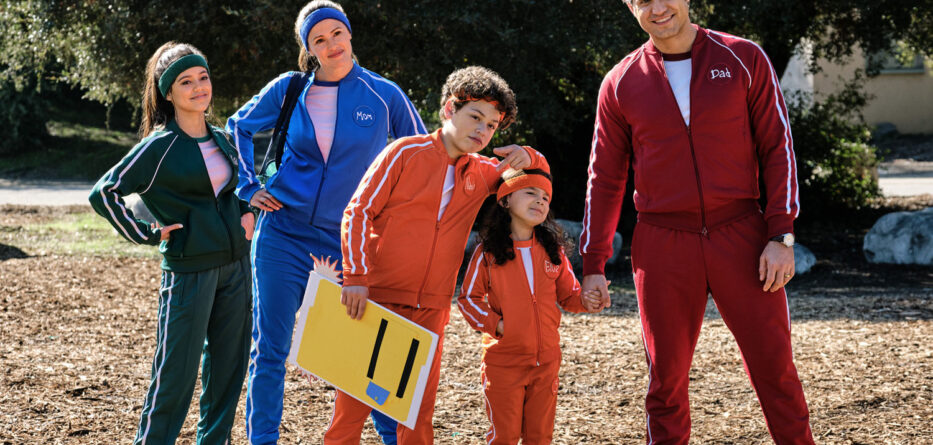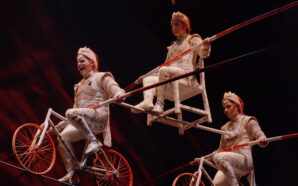Arturo Hilario
El Observador
The new Netflix film “Yes Day” asks the question, “What would your children do if you couldn’t say ‘no’ to them for a day?”
Parents Allison and Carlos Torres (Jennifer Garner and Édgar Ramírez) are wound up with work and home, and the idea of giving the kids and in some ways themselves a ‘yes day’ – in which they give themselves the freedom to do whatever fun things they want for 24 hours – becomes a reality as the Torres parents give into the idea and hilarity ensues.
I spoke to Venezuelan actor Édgar Ramírez recently about his opinion on “Yes Day” and how his experience on participating in his first comedy went, and it included the importance of diversity to the crew and Producer Jennifer Garner by including Puerto Rican director Miguel Arteta and speaking Spanish in the film, the connection to Ramírez’s inability to see his own family in Venezuela, and the how adults should also release tension through ‘yes days’.
Thank you very much for taking the time to talk about “Yes Day”. To start, I wanted to find out what interested you about the script and the story of this movie.
There are several things. I find the concept of a ‘yes day’ fascinating. I find the theme of ‘yes day’ incredible as a therapeutic tool. Because in addition, without wanting to spoil things so that people can really enjoy it when they see it, when people see the film, they will realize that ‘yes day’ is not just an activity that should be done from parents to children. It is a wonderful tool for any relationship that is important to you.
It can be your relationship with your partner or your relationship with your parents, with your co-workers, with yourself, because basically it has to do with exercising flexibility to somehow release tension, soften it; to also restore the balances that is irretrievably lost in the day to day [life] and the dynamics of any relationship, even with yourself
When you concentrate only on work, work, work, work, you think about that until you are completely destroyed. When are you going to take a little vacation or take a moment to leave, or walk or take a hike? I mean, that kind of detail seems wonderful to me. And obviously also the wonderful invitation from Jennifer Garner, who is basically the culprit of all this. She was the one who invited me to make this movie and I feel very grateful because not only [have] I gained a wonderful experience doing my first comedy, but I have also gained a close friend and a person who is very important today in my life.
And can you tell me a little about your role of Carlos Torres, who is the father in the movie?
Yes, well, Carlos is a lawyer of Venezuelan origin living in California, who met Alison, fell in love, got married.
He was always very, very open to adventure together with her, because they were both adventurers and once the children are born and they start having to make plans to create the structures that allow you to educate your children.
Suddenly he was afraid to become the unpopular dad and left all of that, especially the role of the ‘bad cop’ to his wife and basically his journey in the film is to understand that as long as you can be loving with your children, you also need to get involved in education and to get involved in the structure and guidance that children hopelessly need.
And that is a dynamic is one that I found very interesting within the film, because normally in these types of films that are at first sight family comedies, the focus is on the children, that is, from parents to children.
And I think that one of the peculiarities that this film has that caught me is that it explores the dynamics within the couple. There is a love story within the film, which is the restoration of balance between Allison, the character played by Jennifer Garner, and my character who is Carlos.
The incredible role of raising children and educating children is a role that must be shared equally within families that have more than one father or that have more than one mother.
Do you understand when, when there are two parents or two, or two or more than two representatives, that role needs to be distributed? One cannot always be the bad cop and the other good cop, because there is tension. And we see that tension in the film and it is part of what the ‘yes day ‘ helps to solve.
In Latin America we usually see a lot of that, the theme of which the mother is always responsible in establishing structures and often fathers who almost become another child to raise. And I find it very important that the film in a fun way, in a fresh way, it perhaps opens a space for discussion and reflection on the issue of gender equality in the role of parenting.
What is it like working on a comedy in general and working with children and the stunts? And how does that compare to other work you’ve done like “The Undoing”?
It’s my first time doing a comedy and it was wonderful, even scary because I had never done comedy and doing comedy is a very serious job, but because it is completely different from what I had done before. But I loved it, and the kids were wonderful. I’m not Dad, I have no children yet, but but I’m a very involved uncle, very present in the lives of my nephews and I believe a lot in the family, defend it a lot.
Any type of family, the concept of family is something that I think of, be it the family in which we grew up, in which we were born or the family we choose, because I also believe a lot in the concept of family. I chose from any type of family, however structured, whether traditional or not, it is something that is very important to me.
Even a grandmother and a grandson are a family. A dad with his children in a family. Two dads, two moms, everyone.
The concept of family for me is very, very important. And for me, it is also due to political issues and the situation in my country, in Venezuela. I was separated from my family for so long, forced to separate from [them].
This film is a way of celebrating that also, [the] love that I feel for my family and for the concept of family in general.
That’s a great perspective. Additionally, could you speak on a favorite scene from the movie?
The truth is, and with this I do not want to sound like a demagogue, I loved them all because in fact I joke with Jennifer and tell her that I believe that she and Miguel Arteta, our wonderful director, who is also Latino, I believe that They consulted with someone who knew me closely and then and then they offered me the script because, for example, one of the things I like the most in life is eating ice cream.
I am a professional eater, that is, obviously I am not going to recommend that they eat the amount of ice cream that I ate [in the move] because I ate it, because I am a professional. But it was wonderful. That was my childhood fantasy since forever. To arrive and to be given massive quantities of ice cream without stopping. I didn’t imagine that at last I would fulfill that fantasy. There is nothing that I like more than an amusement park, than a Six Flags. I love rollercoasters. Since I had my first car I always imagined, always fantasized, and I think that happens to everyone, with rolling down the window to see what would happen. And so I had a lot of fun making the movie, I really liked all the scenes.
And speaking of the family, the movie and even the Latino director, do you think it is important to see a diverse family in something as accessible as a family comedy?
Completely, completely. In fact, that was established from the beginning of this movie. Jennifer and Miguel told me that they were very clear, that they wanted the father in the film, the father of the family, to be of Latino origin. In other words, you are simply in any city in California and basically, we live in one of the most diverse states in the United States and one of the most diverse places in the world.
The film does nothing but reflect the reality in which we live, the world in which we live. And obviously representation is very important – and it is very important that every day the stories in film and television in the mainstream media represent and reflect the daily reality in which we live. I live in Los Angeles and I spend half of my day speaking Spanish. In other words, I speak Spanish and English constantly, I switch from one language to the other. It is completely natural. And for us it was also important to speak in Spanish, [and] speak in Spanish with the children.
I believe that this country was forged precisely in the cultural richness, product of diversity, of people who came from many parts of the world to be this better country and I find it very nice that a film like this in a completely organic way, transmits it, reflects it.
“Yes Day” is streaming now on Netflix.






